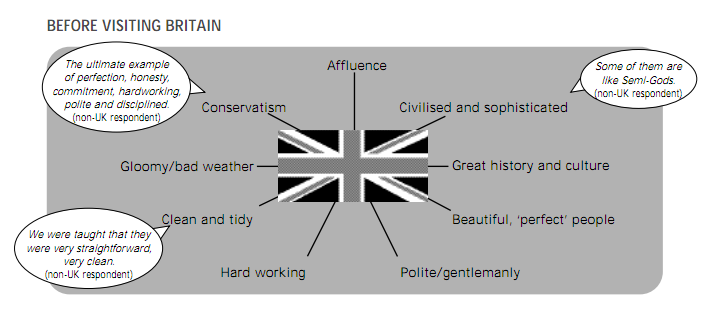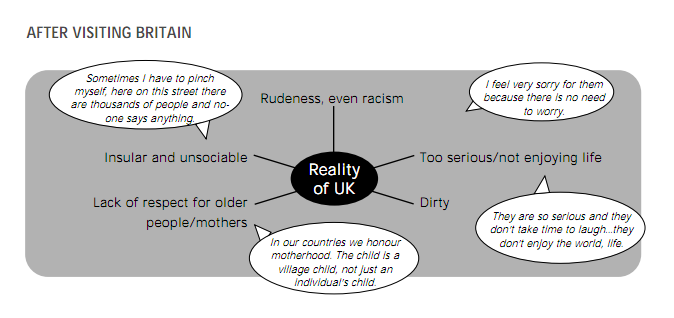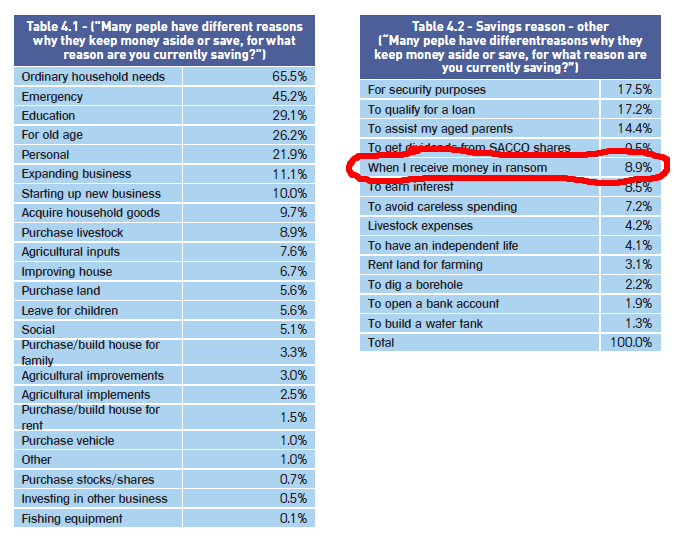Sometimes listening to criticisms of models feels a bit like this.
31 January 2025
Economic models are so unrealistic
Sometimes listening to criticisms of models feels a bit like this.
30 January 2025
South Sudan non sequitur
Simon Tisdall writes in the Guardian
Opportunity cost means asking "compared to what." Can South Sudan survive as a viable state compared to what? A Khartoum-led state whose most significant offerings to the South over the last 50 years have been bombs? In what sense was the Khartoum-led state "viable" in the South over the last 50 years?
It's a bit like sceptically asking a daily victim of domestic violence for 50 years whether they are really being realistic thinking that they can survive as a viable independent household.
Would you rather live in a weak state or a state that is literally trying to kill you?
disputes over oil revenue-sharing, cross-border conflict, and looming famine. These multiple crises combine to pose a fundamental question: can South Sudan survive as a viable state?Which in a slightly round-about way is a nice reminder of the tremendous benefits of studying economics. Economics teaches you a handful of incredibly powerful core concepts which, once assimilated, you kind of take for granted, and forget that not everybody intuitively thinks this way. Supply and demand. Incentives. Opportunity cost.
Opportunity cost means asking "compared to what." Can South Sudan survive as a viable state compared to what? A Khartoum-led state whose most significant offerings to the South over the last 50 years have been bombs? In what sense was the Khartoum-led state "viable" in the South over the last 50 years?
It's a bit like sceptically asking a daily victim of domestic violence for 50 years whether they are really being realistic thinking that they can survive as a viable independent household.
Would you rather live in a weak state or a state that is literally trying to kill you?
24 January 2025
Hold on to your hats
So Juba has decided to stop oil production in South Sudan, in protest of Khartoum theft. Pre-independence, revenues from the South were split 50:50, and Khartoum have basically been trying to continue that by imposing arbitrary fees, asking for up to $30 per barrel (Juba claims that normal prices for pipeline transit fees in other countries are around $1 per barrel).
So now we have a war of attrition. Which side can afford to last out the longest before making a compromise? Who has the largest cash reserves relative to their recurrent spending demands? The numbers are probably not in the public domain, but Khartoum does at least have some other sources of revenue. Revenues in Juba must basically be zero now. But then Juba does probably have a more sympathetic population who seem to be behind the decision, and therefore with perhaps a greater appetite for dramatic spending cuts than citizens in Khartoum. Good luck Juba, and I pray this ends peacefully.
Do chime in if you have any insights.
Update: Alex de Waal notes that if the pipes are shut, it will take 6 months to get oil flowing again. The last chance to come to a deal is apparently Friday when Bashir and Kiir meet in Addis Ababa.
So now we have a war of attrition. Which side can afford to last out the longest before making a compromise? Who has the largest cash reserves relative to their recurrent spending demands? The numbers are probably not in the public domain, but Khartoum does at least have some other sources of revenue. Revenues in Juba must basically be zero now. But then Juba does probably have a more sympathetic population who seem to be behind the decision, and therefore with perhaps a greater appetite for dramatic spending cuts than citizens in Khartoum. Good luck Juba, and I pray this ends peacefully.
Do chime in if you have any insights.
Update: Alex de Waal notes that if the pipes are shut, it will take 6 months to get oil flowing again. The last chance to come to a deal is apparently Friday when Bashir and Kiir meet in Addis Ababa.
22 January 2025
Lenny Henry in Kibera
Four British celebrities try living and working in Kibera for a week on the £1-£2 average daily income (hattip: my mum).
Posted by
Lee Crawfurd
4
comments
 Links to this post
Labels:
celebrities,
Kenya,
slums,
urbanisation
Links to this post
Labels:
celebrities,
Kenya,
slums,
urbanisation
18 January 2025
The culture that is Britain
17 January 2025
Why do Kenyans save?
0.089% of them apparently answered "When I receive money in ransom" to this question, from the 2009 Financial Access survey. Ahem.
15 January 2025
Korogocho
I've spent most of this week wandering around Korogocho, Nairobi's third or fourth biggest slum (against recent FCO advice against "all but essential travel to low income areas of Nairobi, including all township or slum areas" - worth a few dangerzone street-cred points?).
Best t-shirt slogan: “No Handouts, Just Empower me.”
Best blog on the neighbouring Kariobangi light industrial cluster where many Korogocho residents work.
What you can do to help: apparently uneaten plane meals from Kenyan Airways get dumped at the enormous dandora dumpsite adjacent to Korogocho, and end up in the market (including things like quite expensive Out of Africa brand Macadamia nuts). So the moral of the story: next time you fly Kenya airways, don't eat your plane meal and donate it to a poor slum dweller!
Korogocho is probably a bit poorer and a bit more dangerous than Kibera so I was advised against taking a camera, but it looks pretty similar to Duncan's photos of Kibera from this week. In fairness, someone did have a phone snatched literally opposite where we were sitting, and there was a stabbing on the same street a few nights ago. A local medical centre reported stabbings as the #1 source of admissions, followed by malaria and typhoid.
I did sneak one photo from the safety of the NGO building we were based in. Remember those "amazing" sunlight powered water-bottle lights innovated for slums in Philippines that were all over the development blogs a few months ago? Rubbish. Everywhere in Korogocho just fits a square of transparent corrugated plastic into the corrugated iron roof. Much better.
Lots of other interesting moments, but for now;
Best t-shirt slogan: “No Handouts, Just Empower me.”
Best blog on the neighbouring Kariobangi light industrial cluster where many Korogocho residents work.
What you can do to help: apparently uneaten plane meals from Kenyan Airways get dumped at the enormous dandora dumpsite adjacent to Korogocho, and end up in the market (including things like quite expensive Out of Africa brand Macadamia nuts). So the moral of the story: next time you fly Kenya airways, don't eat your plane meal and donate it to a poor slum dweller!
Kenyan Political joke of the week
No, not the election news, but this:
Little Njoro of Buru estate in Nairobi wanted Kshs 1,000 badly and prayed to God for two weeks but nothing happened.
Then he decided to write God a letter requesting the Kshs 1,000. When the postal authorities received the letter addressed to God from Buru buru in Kenya, they decided to send it to State House.
The letter never even got to the president but an aide was very touched and so he sent the boy Kshs 200. He felt that this was a lot of money for a small kid.
Njoro was delighted when he received the Kshs 200 and sat down to write a thank you note to God, which read:
Dear God,
Thank you very much for sending the money.
I don’t want to sound ungrateful but I noticed that for some reason you had to send it through State House and, as usual, those crooks deducted a whole Kshs 800. My teacher tells me that you never forget, but did you not this once forget that Kenya is one of the most corrupt countries in the world and that as my dad is always saying corruption starts at the top?
I suggest you send an angel next time.HT: @RichardTrillo
Thanks,Njoro.
10 January 2025
Which countries are most vulnerable to the resource curse?
A new report by my colleague Dan Haglund suggests it is;
Non-fuel, mineral-dependent countries:
Non-fuel, mineral-dependent countries:
Bolivia, Burkino Faso, the DRC, Ghana, Guyana, Laos, Mali, Mauritania, Mongolia, Papua New Guinea, Tanzania and Zambia.
Fuel-dependent countries: Algeria, Angola, Azerbaijan, Cameroon, Chad, Cote d’Ivoire, Iran, Iraq, Nigeria, Sudan, Timor-Leste and Yemen.
Fuel-dependent countries: Algeria, Angola, Azerbaijan, Cameroon, Chad, Cote d’Ivoire, Iran, Iraq, Nigeria, Sudan, Timor-Leste and Yemen.
See the full report here or coverage in the FT here.
Posted by
Lee Crawfurd
0
comments
 Links to this post
Labels:
governance,
minerals,
oil,
opm,
resources
Links to this post
Labels:
governance,
minerals,
oil,
opm,
resources
08 January 2025
I'm off to Kenya
Sorry. You can blame Stefan Dercon because I found this on his old website.
05 January 2025
Kiva: A Gateway Drug?
It's pretty clear that "lending" money on Kiva is not the best way of giving to the poor. You aren't at all really lending to those individuals, but rather donating the interest you could have earned on your deposit to a microlending institution. And microlending institutions can raise their own money from deposits or capital markets, so you would be much better off donating to something more effective, such as buying bednets or deworming pills (see givewell.org's current recommendations, or the Proven Impact Fund).
The potential saving grace for me is Kiva as a development gateway drug. The story and personal connection is powerful. What if Kiva can get people hooked on development, who will then eventually find out more and graduate to doing something with bigger impact? I feel similarly about voluntourism. Would love to see any research on either of these topics.
Does succumbing to Kiva or voluntourism advertising have a causal impact on individual's attitudes and actions towards development, after the selection effect of those individuals being more likely to be interested in development in the first place?
The potential saving grace for me is Kiva as a development gateway drug. The story and personal connection is powerful. What if Kiva can get people hooked on development, who will then eventually find out more and graduate to doing something with bigger impact? I feel similarly about voluntourism. Would love to see any research on either of these topics.
Does succumbing to Kiva or voluntourism advertising have a causal impact on individual's attitudes and actions towards development, after the selection effect of those individuals being more likely to be interested in development in the first place?
Posted by
Lee Crawfurd
7
comments
 Links to this post
Labels:
aid,
charity,
development,
giving,
microfinance
Links to this post
Labels:
aid,
charity,
development,
giving,
microfinance
04 January 2025
There is no great stagnation
One of the points that Tyler makes in his great book is that though there has been a US innovation slowdown of late, the internet is a technology which, though not reaping immediate economy-wide benefits in terms of jobs and revenues, is something which might just pay off more in the long-run. Let's hope it can be analogous to steam power:
Steam power is an example of a general-purpose technology (GPT), that is a technology that can be applied to a variety of uses. Other GPTs include electricity and computers. It takes decades to develop the potential of GPTs, so their contribution to economic growth takes place long after their invention. That was certainly true for steam. As late as 1800, almost a century after Newcomen’s invention, steam power made only a minute contribution to the British economy. By the middle of the 19th century, however, the potential of steam was finally being realized as it was applied widely to transportation and industry. Half of the growth of labour productivity in Britain in the mid-19th Century was due to steam.And lets hope it doesn't take us a century. From Global Economy History: A Very Short Introduction (thanks Tom for making me read it. Very good. As is much of the rest of the series, including the Economics one)
Posted by
Lee Crawfurd
0
comments
 Links to this post
Labels:
economics,
growth,
innovation,
research,
technology
Links to this post
Labels:
economics,
growth,
innovation,
research,
technology
03 January 2025
Marginal (personal) Revolutions
Oliver Burkeman on New Year resolutions:
behind almost every New Year’s resolution, for example, is the unspoken implication that whatever change we’re trying to make - to start exercising more, eating better, procrastinating less - we’re going to do it every day, perfectly, for the rest of our lives. I’d always wondered why my efforts at such extreme self-discipline seemed to fail every time. But then, gradually, I began to understand that real self-discipline is almost the exact opposite: the willingness to make small, incremental adjustments, to tolerate imperfection and bumpy progress, and not to throw in the towel in frustration the moment something starts to go wrong. In this sense, modest action in fact takes more guts than massive action. But it has the inestimable advantage that it really works.
How to be slightly happier
This one is a bit embarrassing. About a month ago, I started keeping a
gratitude journal.
In Oliver Burkeman's words;
"After spending some time immersing myself in this self-help business, I reached a fork-in-the-road moment: I realised I was going to have to choose between rejecting certain ideas because they sounded so corny, or accepting them because they work. Gratitude journals are at the extreme end of the cheesiness continuum, but the studies are hard to refute."
Burkeman writes one of my favourite columns; this column will change your life, which is about the self-help business, but in a very dry, sceptical, English kind of way, with a healthy appetite for rigorous evidence.
The evidence won me over, so I gave it a try, and I'm pretty sure it works. Of course, not that you should pay any attention to my 1 data point anecdote with zero counterfactual when you have actual peer-reviewed studies to go on, but anyway.
Take a minute every day
to think about something you are grateful for. I send myself a daily email reminder as I'm a little bit allergic to actual paper (with ohlife.com), and normally reply with just one word or sentence. And no, you can't read mine.
(Is this my least cool post ever?)
Subscribe to:
Posts (Atom)



